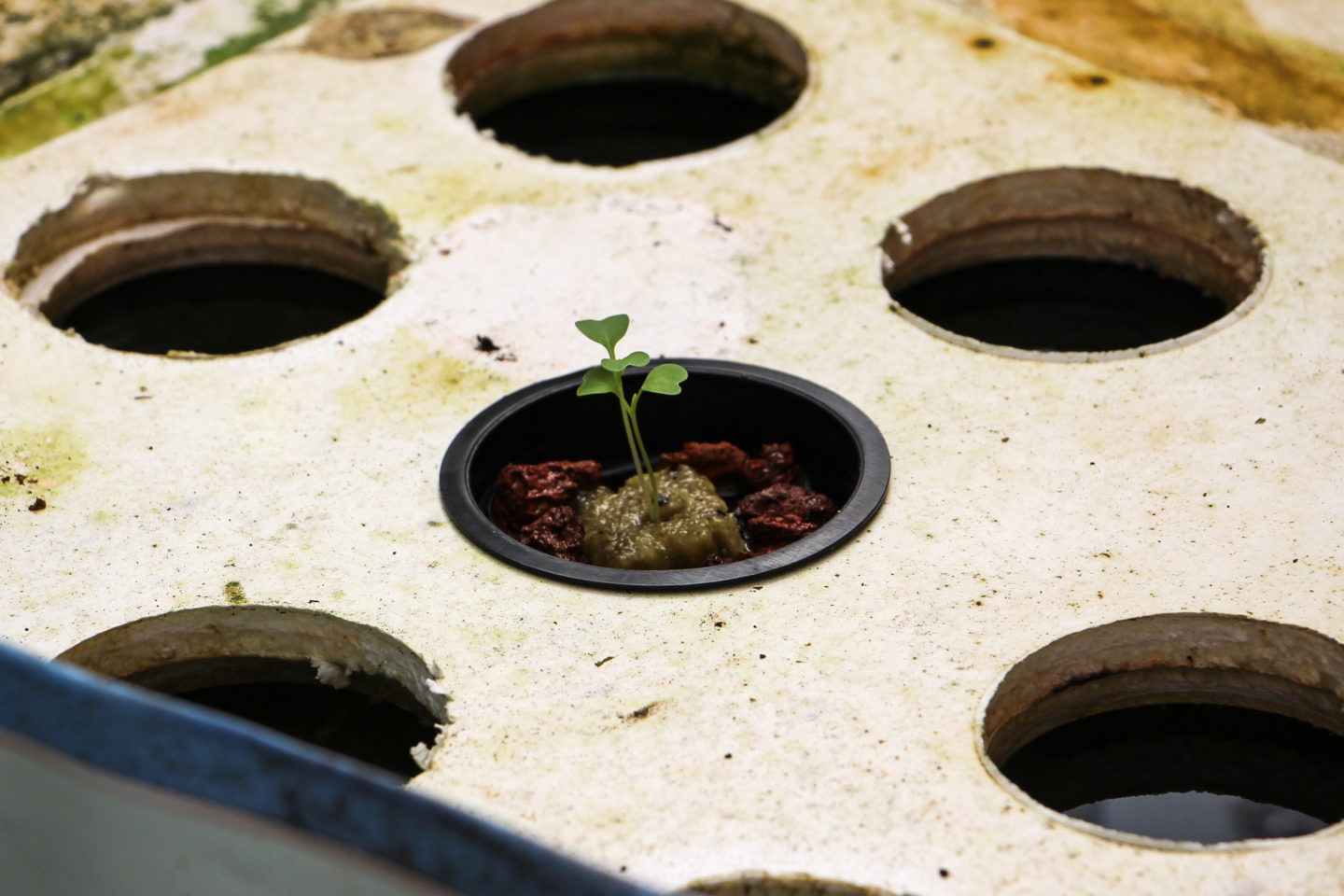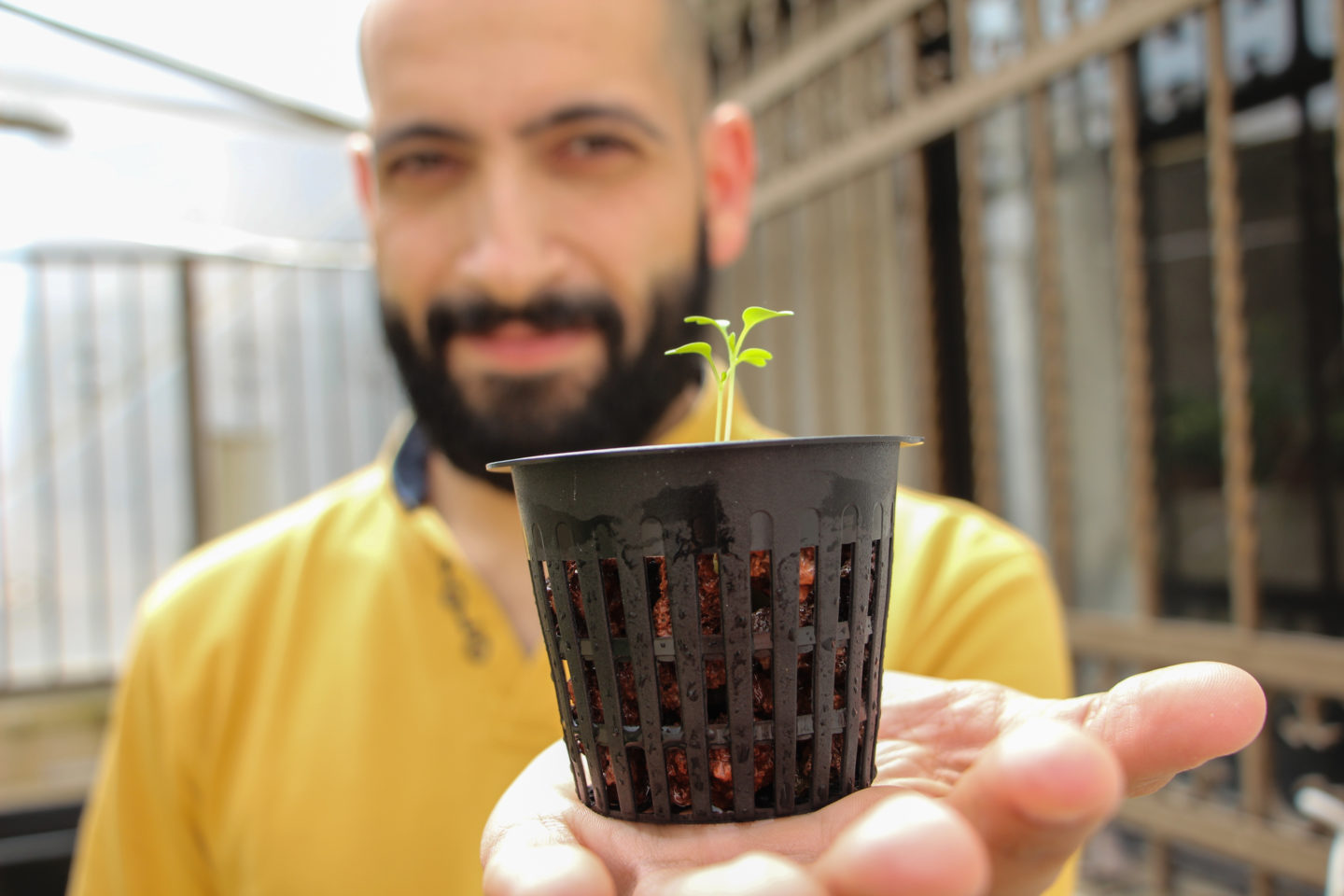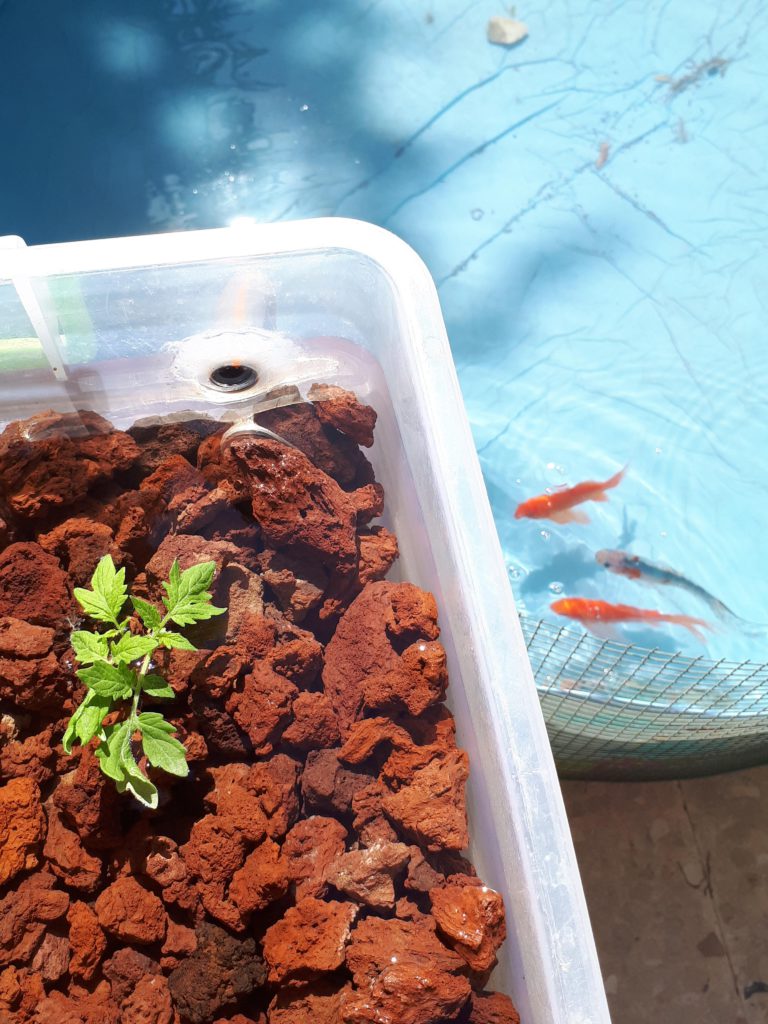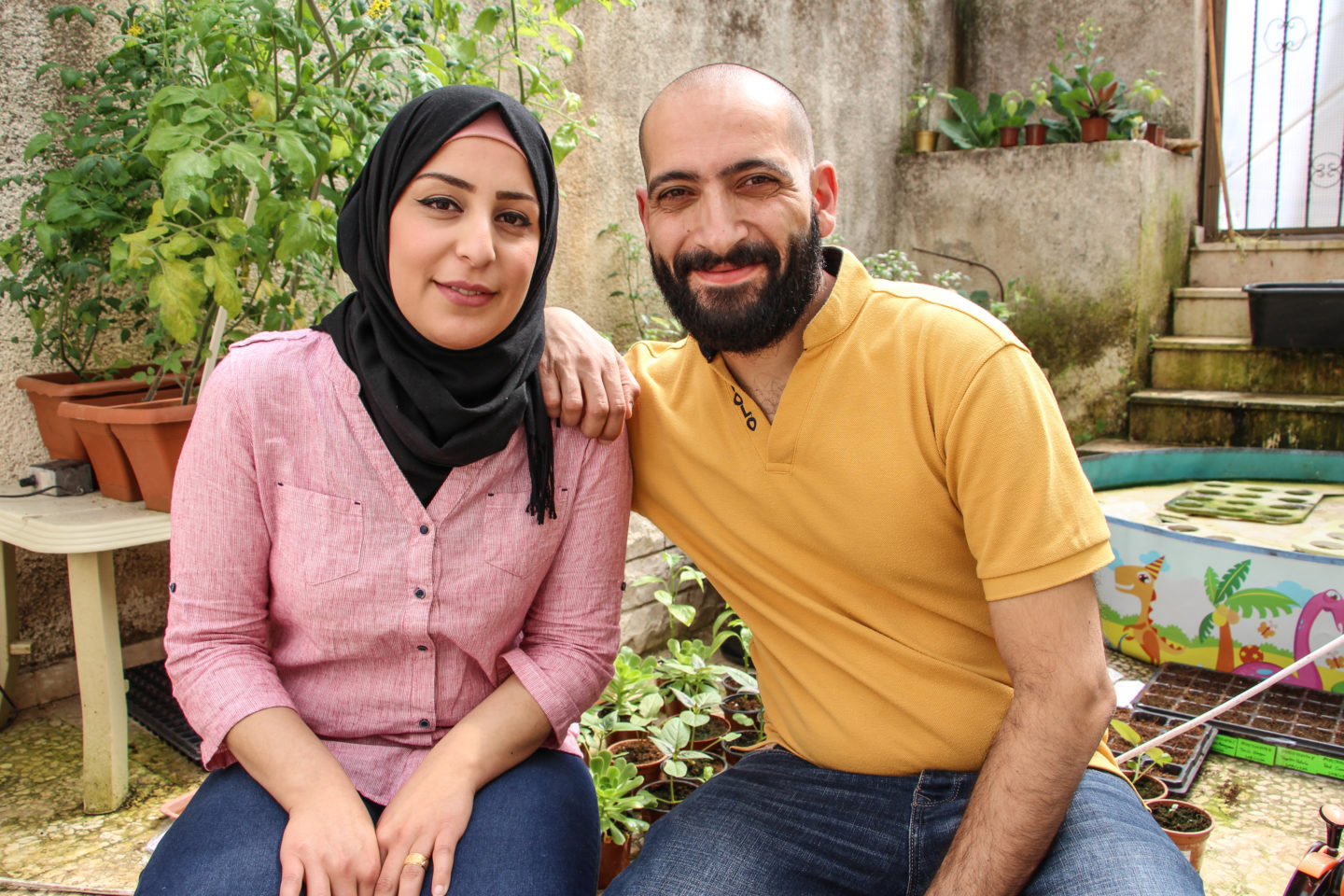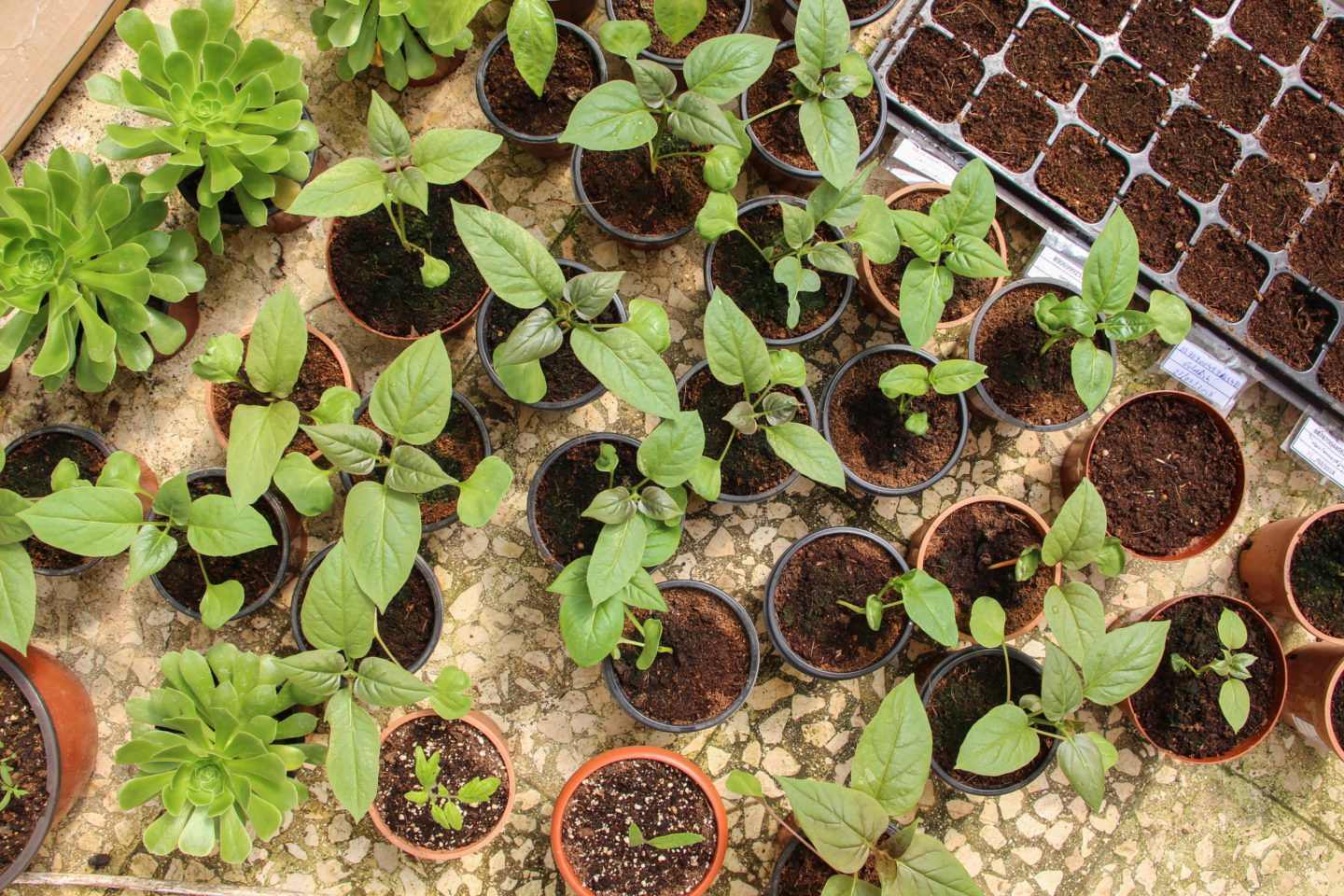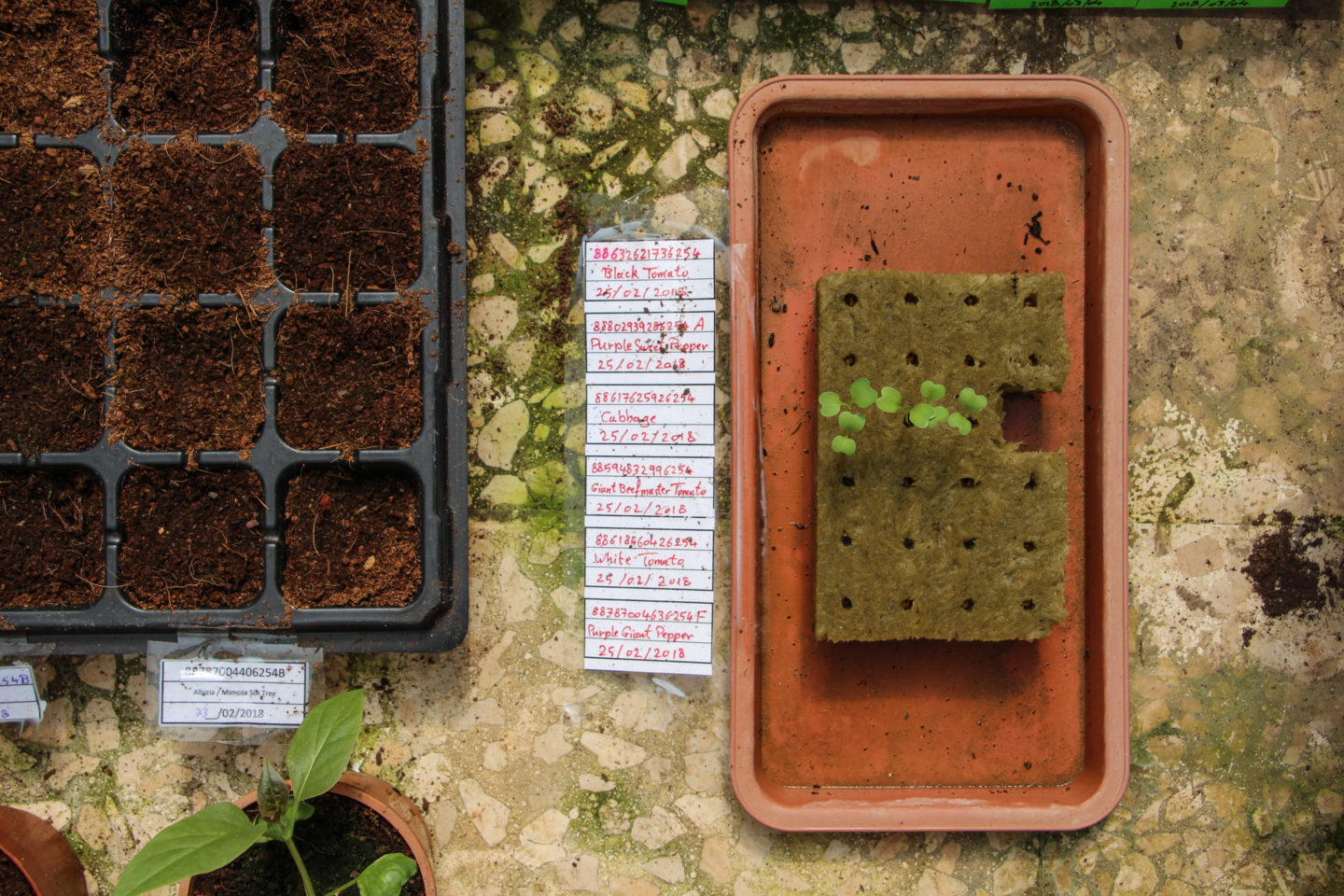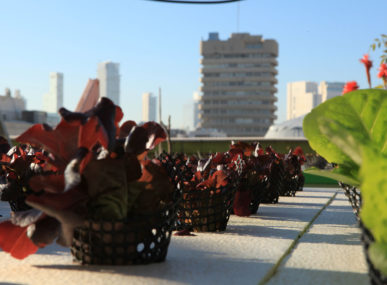Maroof thinks sustainable success with local farmers will also come by showing them the results of aquaponics, rather than just telling them about it. “Don’t make farmers watch a PowerPoint for two hours, make them experience it. We have shared our products in showrooms of agricultural projects. We’ve made people taste our organic tomatoes, and they were shocked. We compared it to the giant chemical tomatoes from the market, and farmers noticed the difference,” Maroof expands.
Searching for a business balance:
Like any startup, Maroof and Suhad are still figuring out the business model that works best. For the time being, that has meant scaling back their initial aquaponics operation.
When they started in 2016, PETRICHOR’s greenhouse was 200 square meters, with 2,500 seedlings. This size proved to be too expensive, and Maroof says the company plans to move to a smaller, 70- to 80-square-meter property by summer 2018. That new greenhouse will be fit with a custom, automated electronics system Maroof rigged to adjust the lights and temperature for an optimized growing environment.
In the meantime, PETRICHOR Aquaponics is diversifying its revenue stream using the location it has: Maroof and Suhad’s home. On the dining room table sits one of Palestine’s first fish tanks adorned with real plants rather than plastic ones; in the spare bedroom, the gentle whir of half a dozen tanks serving as fish nurseries. Selling these planted aquariums and fish such as guppies and catfish to hobbyists are two of the added ways Maroof and Suhad intend to raise capital for their main aquaponics property.
Step onto the couples’ side terrace and you encounter another revenue source. Mounted along the walls of the terrace and the house are thick plastic sheets — a makeshift greenhouse that serves as a nursery for dozens of meticulously labelled seedlings. Aquaponics rafts float on water in a kid’s pool, waiting to be filled with seedlings. Watch the water for more than a second and you will see a koi fish nibble the surface.

